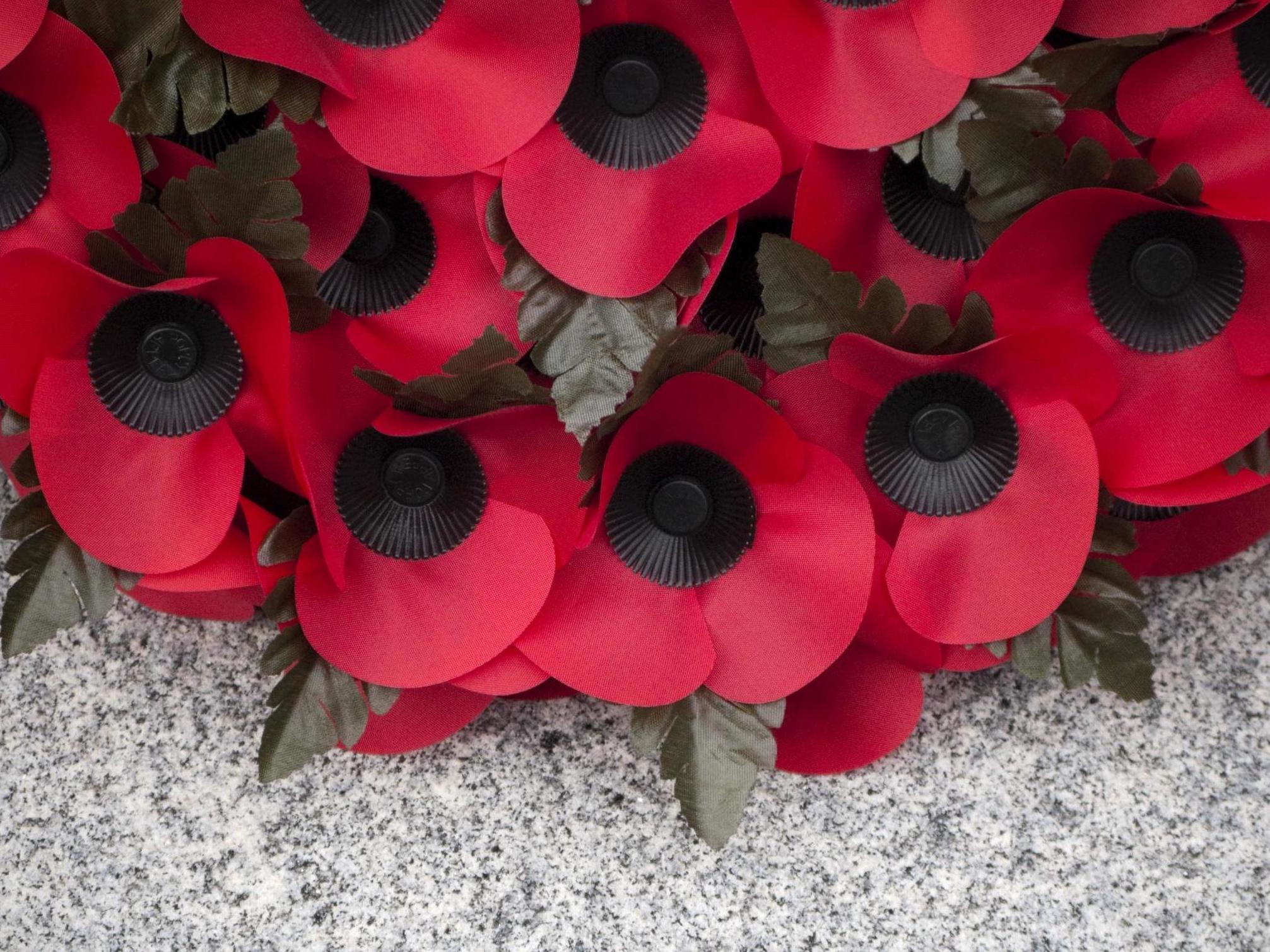Red poppy to commemorate civilian victims for first time
‘Up until last year, [the Royal British Legion] were insisting that remembrance should involve only UK and allied armed forces personnel,’ says pacifist group

Your support helps us to tell the story
This election is still a dead heat, according to most polls. In a fight with such wafer-thin margins, we need reporters on the ground talking to the people Trump and Harris are courting. Your support allows us to keep sending journalists to the story.
The Independent is trusted by 27 million Americans from across the entire political spectrum every month. Unlike many other quality news outlets, we choose not to lock you out of our reporting and analysis with paywalls. But quality journalism must still be paid for.
Help us keep bring these critical stories to light. Your support makes all the difference.
Red poppies will commemorate all civilians who lost their lives in war from this year on, the Royal British Legion (RBL) has said.
The artificial flowers will also be worn to remember the victims of terror attacks.
The decision to alter the wildflower’s symbolism has emerged less than a month before Remembrance Day.
“Since it was founded in 1921, the Royal British Legion has always acknowledged the human cost of conflict and looked towards a peaceful future,” said Robert Lee, the RBL’s assistant director of remembrance.
“Our core positioning hasn’t changed but we do want to make [that] more explicit in our language, because Remembrance is inclusive of all modern Britain and its important communities know their views and values are reflected in our activity.”
Poppies are traditionally worn to remember soldiers who died in combat.
The flowers grew on the battlefields during World War One, particularly in Flanders. The image was later immortalised in poems such as “In Flanders Fields” by Lieutenant-Colonel John McCrae and eventually provided inspiration for the RBL’s annual poppy appeal campaign.
"As a charity we have a particular responsibility to the Armed Forces community under our charitable remit and the deaths of personnel who have served with the British Armed Forces will always be at the heart of Remembrance for the Legion,” Mr Lee said. “But Remembrance has a wider meaning and role, and this does include all civilians affected by conflict and terrorism.
“Remembrance paves the way for reconciliation, but it is up to each generation to find reconciliation for themselves, and the Legion upholds its place bringing people and communities together to have these important conversations.”
The charity made the decision to alter the symbol’s meaning after carrying out a review of its position.
An increasing number of people in the UK have worn white poppies instead of red in recent years.
The white poppy is intended to remember all victims of all wars.
The artificial flowers were first produced in 1933. In 2018 around 119,555 white poppies were distributed, more than at any point previously.
They are sold by the Peace Pledge Union (PPU). A spokesperson for the pacifist organisation said the RBL had previously resisted calls to commemorate civilian deaths with red poppies.
“We welcome the Royal British Legion’s decision to include civilian victims of war in remembrance,” a spokesperson for the PPU said. “Up until last year, they were insisting that remembrance should involve only UK and allied armed forces personnel. We’re pleased they have listened to the many voices calling for the inclusion of civilians in remembrance.
“However, they’re saying that they “remember” armed forces personnel and they “acknowledge” civilian war deaths, which implies they still see civilians as less important. If we are to remember the horrific realities of war, we need to remember all victims of war, both military and civilian, of all nationalities. We also need to focus on the original message of remembrance after World War One, which was “Never Again”.
“White poppies represent remembrance for all victims of war, a commitment to peace and a rejection of militarism.”
Poppies and their symbolism have caused controversy in recent years, with some arguing that the wildflowers glorify war.
Others believe such arguments are disrespectful to the UK’s war dead. Poppies both red and white will be worn on Remembrance Day next month.
The event is marked on 11 November, usually with a two minutes silence at 11am.
Subscribe to Independent Premium to bookmark this article
Want to bookmark your favourite articles and stories to read or reference later? Start your Independent Premium subscription today.
Join our commenting forum
Join thought-provoking conversations, follow other Independent readers and see their replies
Comments